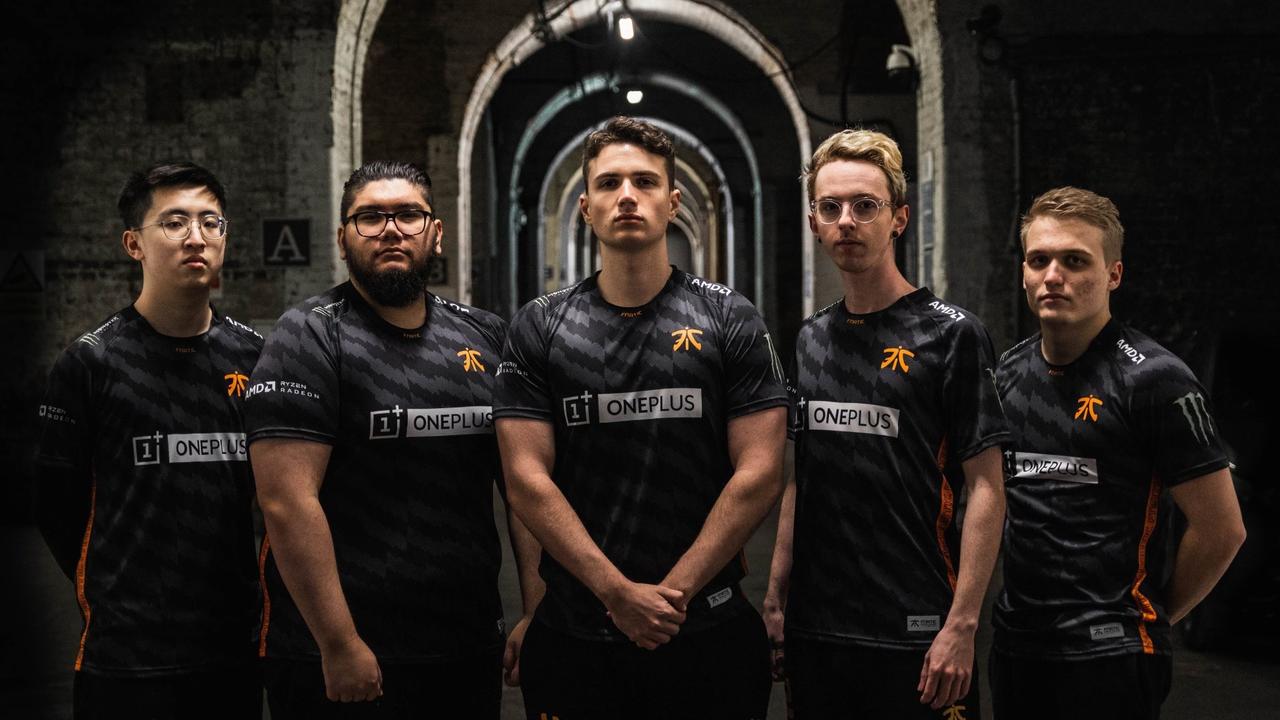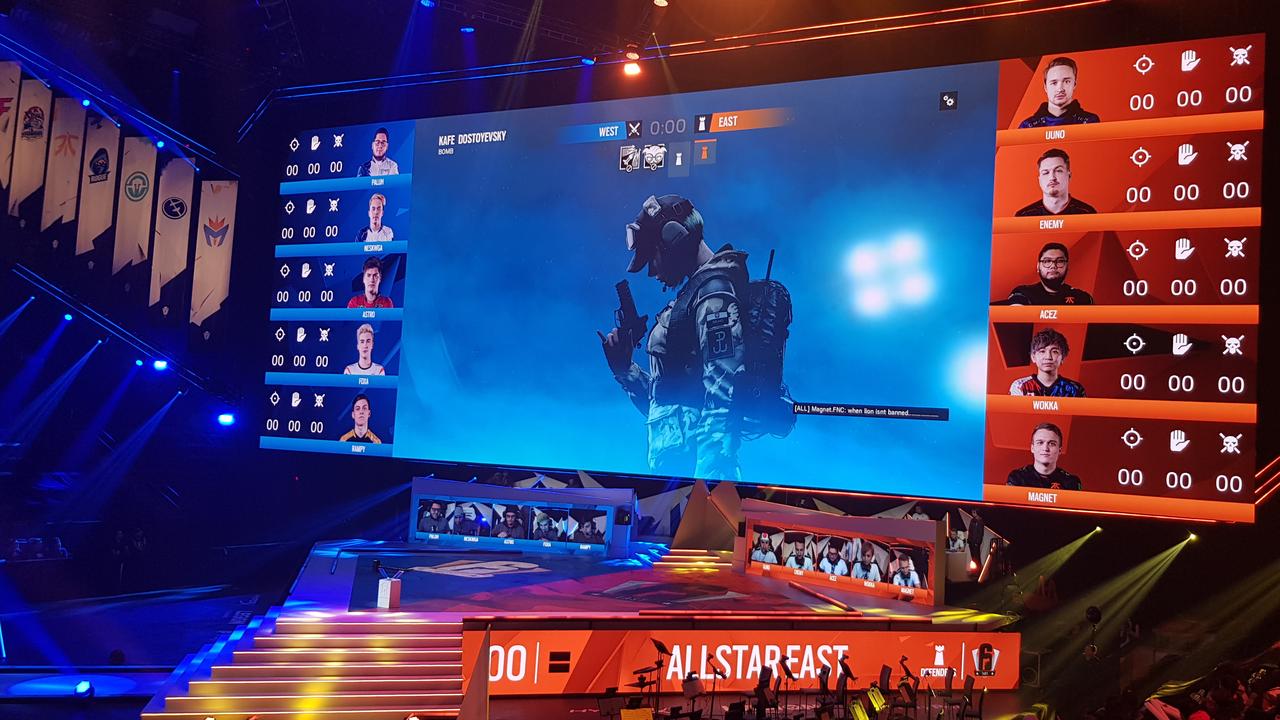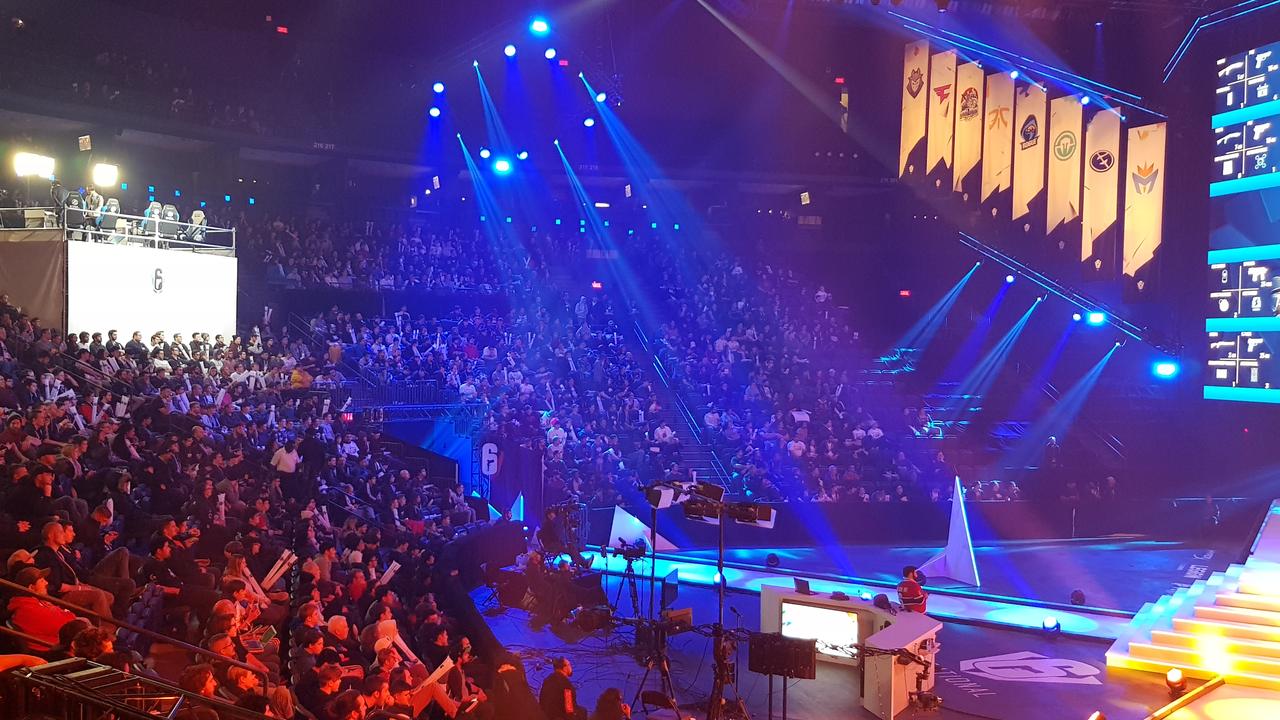Australian e-sports competitors take aim at Rainbow Six Siege Championships
It was the sporting event that most Aussies didn’t watch over the weekend, but there was drama, intrigue and plenty of money at stake.
Australia continues to assert itself on the world stage in the competitive e-sports field, with a team of locals taking a shot at a $US2m prize pool at the world championships for popular shooter game Rainbow Six Siege in Montreal.
Competing as part of team Fnatic, Australians Jake “Virtue” Grannan, Ethan “RizRaz” Wombwell, Daniel “Neophyter” An, Jason “Lusty” Chen, Matthew “Acez” McHenry and team captain Etienne “Magnet” Rousseau took to the stage at Place Bell from February 15-17 for the prestigious Six Invitational, the world championship event for the e-sport.
Facing off against Japanese team Nora-Rengo, Fnatic put up a tough fight in the quarter-finals but were defeated 2-nil.
That wasn’t the end of the Australian presence on the main stage though, as Rousseau and McHenry returned on Grand Final Sunday to compete in an All Stars match as part of team East before a nearly full arena. The match went into overtime after some impressive plays and sudden reversals on both sides before victory was claimed by the West team.
Adding to the Australian accents heard over the weekend was that of analyst James “Devmarta” Stewart, who was on stage providing insightful analysis on the event and the competition as it developed.

Rousseau said it was a huge honour for the team to represent Australia at the Six Invitational.
“I just think the Six Invitational is the biggest event in Siege. It’s got everyone from across the world, the best teams compete in it, it’s got the biggest prize pool,” he said.
“We’re really happy that we made it.”
Coach and manager Jayden “Dizzle” Saunders said it was his third year attending the Six Invitational, with the team working hard in the past two to earn their spot on the stage following their first appearance that had been guaranteed as an exercise in making up tournament numbers.
“For us I think this was a really big one because we came to the last one not expecting to do really well, and we performed well, and we came here and once again, the odds were in our favour, and once again, we proved everyone wrong on the world stage,” he said,
“This (Six Invitational) was a really big one just because it meant we’ve solidified ourselves as a serious team on the world stage. We’ve attended three years in a row.”
Getting a deployment to the Six Invitational isn’t an easy task, especially for Australian teams, and Rousseau said, as with any sport, it helped to have some initial talent to begin with.
“I think the big thing to really improve yourself and reach the next level every time is a passion for the game and just a lot of motivation,” he said.

“It’s always wanting to be better, always knowing that … not that you’re not good enough, but you could always be better.
“There’s always room to improve — that’s the sort of mentality that you have to have. And once you find yourself on a team, you also have to be coachable, you have to be manageable, you’ve got to be very open-minded and just have a lot of passion for the game.”
Saunders said Australia’s notoriously average internet presented some challenges, but the team worked through it.
“I’m very fortunate, I have proper NBN speed,” he said.
“Some of the guys, in terms of the upload/download speed, are like one megabyte per second. We’re talking in big suburbs in Brisbane. They don’t live out west, they don’t live in the country, they live in suburbia.
“Sometimes, especially to get good practice, we’ll sometimes scrim (practise against) the Japanese or other Asian teams. They can be very hard, so you just sort of deal with the latency issues. You sort of trade your own personal satisfaction with your internet to learn more.
“It’s just something we all have grown up with.”
Rainbow Six brand director Alex Remy said despite being the most recent addition to the Rainbow Six leagues, the Asia-Pacific region (which includes Australia) was already making a name for itself in the competition.

“It’s really amazing to see how much the region has grown up in terms of quality of play and overall experience; this is why now we’ve seen (it in) every one of the big events and titles,” he said.
I think the storyline that it brings, having as many countries and as many regions as possible present in such an international event; the story is awesome. In the same stage, facing each other, teams from Europe, Latin America … I think for the players, and the fans, it’s always extra good.
“Usually you tend to root for a team roster that’s close to your heart. To be honest, in terms of viewership, because you do have an Australian team, that means that Australian fans and players are watching the game.”
The $2m prize pool for the Six Invitational is the largest in the event’s history. It is largely made up via a revenue sharing arrangement whereby $500,000 came from Ubisoft and the rest from a percentage of the sales of in-game items such as charms, outfits and weapon colour schemes. The Invitational prize is capped at $2m, with the rest of the money raised via the scheme distributed to other events throughout the year.
Mr Remy said something similar to the revenue sharing mechanic was already in place with the game’s e-sports teams, which had dedicated in-game purchasable items with the team brands on them.
“When, as a fan, you purchase it, then all of a sudden you also contribute with 30 per cent (of that sale) going directly to the organisation,” he said.
“In the case of the prize pool, we decided to try that same mechanic. The prize pool going back to players is a very good way of showing support for the players and (helping) the teams to grow.
“It’s a massive performance bonus.”
Royce Wilson attended the Six Invitational in Montreal as a guest of Ubisoft.



